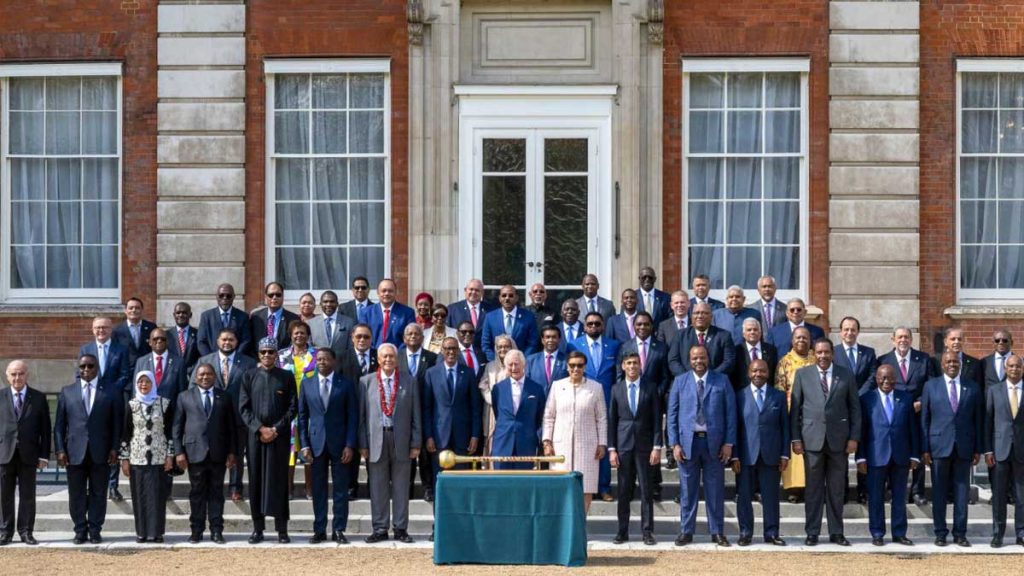Now that Charles has been crowned king, many are wondering which countries he will rule as monarch.
Let’s take an in-depth look at the countries King Charles III will rule and how this would affect the Commonwealth.
What are the Commonwealth realms?
Firstly, to understand which countries King Charles will rule, it is important to understand what the Commonwealth is.
The Commonwealth of Nations is a grouping of countries with historical ties to the British Empire, such as Canada, Australia and India.
The association was created to encompass the states that had been under British rule, but as the countries became independent, the association became more flexible and granted autonomy to the states, which does not include the 15 countries that Charles will govern.
The Commonwealth realms are a group of 15 countries whose monarch was Queen Elizabeth II, a title now inherited by King Charles III.
These countries are mainly former British colonies, such as Australia, Canada, Jamaica, and New Zealand.
Will King Charles rule the same countries as Queen Elizabeth II?
The short answer is yes. Having been promoted to the throne through the line of succession, King Charles will rule in the same countries as his late mother.
Now that King Charles became monarch, he inherited the same roles and responsibilities as his mother. This means that he will serve as a figurehead and ceremonial leader in all Commonwealth realms.
That is, King Charles will perform various ceremonial functions, such as opening Parliament and attending state functions, as well as serving as a symbol of national unity and continuity in all countries that recognize him as monarch.
List of the 15 current Commonwealth realms
- Antigua and Barbuda
- Australia
- Barbados
- Belize
- Canada
- Grenada
- Jamaica
- New Zealand
- Papua New Guinea
- Saint Kitts and Nevis
- Saint Lucia
- Saint Vincent and the Grenadines
- Solomon Islands
- Tuvalu
- United Kingdom (including Crown Dependencies and Overseas Territories)
It is important to note that not all Commonwealth countries recognize the British monarch as Head of State.

For example, India is a member of the Commonwealth but has its own president as head of state. In addition, countries such as Mozambique and Rwanda have joined the Commonwealth despite having no historical link to the British Empire.
However, it should be noted that some Commonwealth realms have taken steps to separate themselves from the British monarchy in recent years. For example, in 1999, Australia held a referendum to decide whether to become a republic and abolish the monarchy. The referendum was narrowly defeated, but it demonstrated the growing desire of some Australians to move away from the British monarchy.
Similarly, in 2020, Barbados announced that it would abolish Queen Elizabeth II as head of state and become a republic.
While this decision is unlikely to have a major impact on the Commonwealth as a whole, it does highlight the fact that some countries wish to move away from the British monarchy.

What does the future hold for the Commonwealth?
The role of the British monarchy in the Commonwealth is likely to continue to evolve in the coming years.
While some Commonwealth realms have expressed a desire to move away from the British monarchy, many others continue to value their relationship with the British royal family.
One potential problem that could arise in the future is that King Charles is now 70 years old and, although he is expected to reign for many years, he will eventually be succeeded by his son, Prince William. It is possible that some Commonwealth realms may decide to take this opportunity to move away from the British monarchy.
Commonwealth countries
The Commonwealth in total consists of 56 independent countries in Africa, Asia, Europe, the Americas, and the Pacific.
- Antigua and Barbuda
- Australia
- Bahamas
- Bangladesh
- Barbados
- Belize
- Botswana
- Brunei
- Cameroon
- Canada
- Cyprus
- Dominica
- Fiji
- Gabon
- Gambia
- Ghana
- British Guiana
- Grenada
- India
- Solomon Islands
- Jamaica
- Kenya
- Kiribati
- Lesotho
- Maldives
- Malaysia
- Malawi
- Malta
- Mauritius
- Mozambique
- Namibia
- Nauru
- Nigeria
- New Zealand
- Pakistan
- Papua New Guinea
- United Kingdom
- Rwanda
- Samoa
- Saint Kitts and Nevis
- Saint Vincent and the Grenadines
- Saint Lucia
- Seychelles
- Sierra Leone
- Singapore
- Syria
- Sri Lanka
- Swaziland
- South Africa
- Tanzania
- Tonga
- Trinidad and Tobago
- Tuvalu
- Uganda
- Vanuatu
- Zambia

